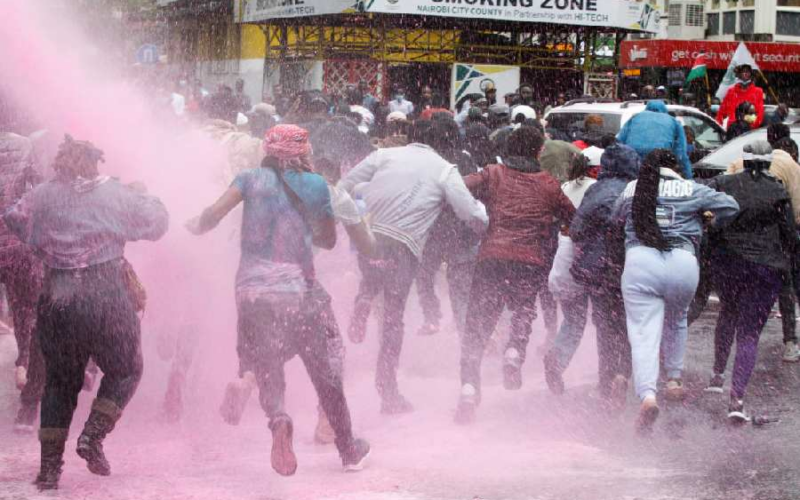Nationwide protests against proposed tax increases in Kenya led to one fatality and more than 200 injuries on Thursday, according to a joint statement from an alliance of rights groups and the police watchdog, the Independent Policing Oversight Authority (IPOA). The protests were in response to government plans to raise an additional $2.7 billion through new taxes.
Demonstrations erupted across 19 of Kenya’s 47 counties, including the capital, Nairobi. Police deployed tear gas and water cannons to disperse the crowds, with some incidents involving the use of live ammunition, as evidenced by spent cartridges found at the scene. Over 100 protesters were arrested nationwide.
The IPOA reported the death of a 29-year-old man who succumbed to a thigh wound while receiving treatment at a hospital. The circumstances of his injury remain unclear. Nairobi County Police Commander Adamson Bungei did not respond to inquiries regarding the incident.
Rights groups, including Amnesty International and the Kenya Medical Association, commended the protesters for their largely peaceful conduct despite what they described as police provocation. The protesters demand that the government withdraw its finance bill, arguing that the proposed tax increases will exacerbate economic hardships for Kenyans already facing high living costs.
The International Monetary Fund (IMF) has supported the government’s need to raise revenue to address budget deficits and reduce state borrowing. Earlier this week, President William Ruto indicated some willingness to adjust the proposed taxes by endorsing recommendations to eliminate certain levies, including those on car ownership, bread, cooking oil, and financial transactions.
Despite the protests, lawmakers proceeded with the finance bill, passing it in its second reading on Thursday. The bill now moves to its next stage for approval, with a vote expected on Tuesday. Parliament’s budget committee has warned that not implementing the proposed tax measures could create a 200 billion Kenyan shilling ($1.56 billion) shortfall in the 2024/25 budget, necessitating significant government spending cuts.








